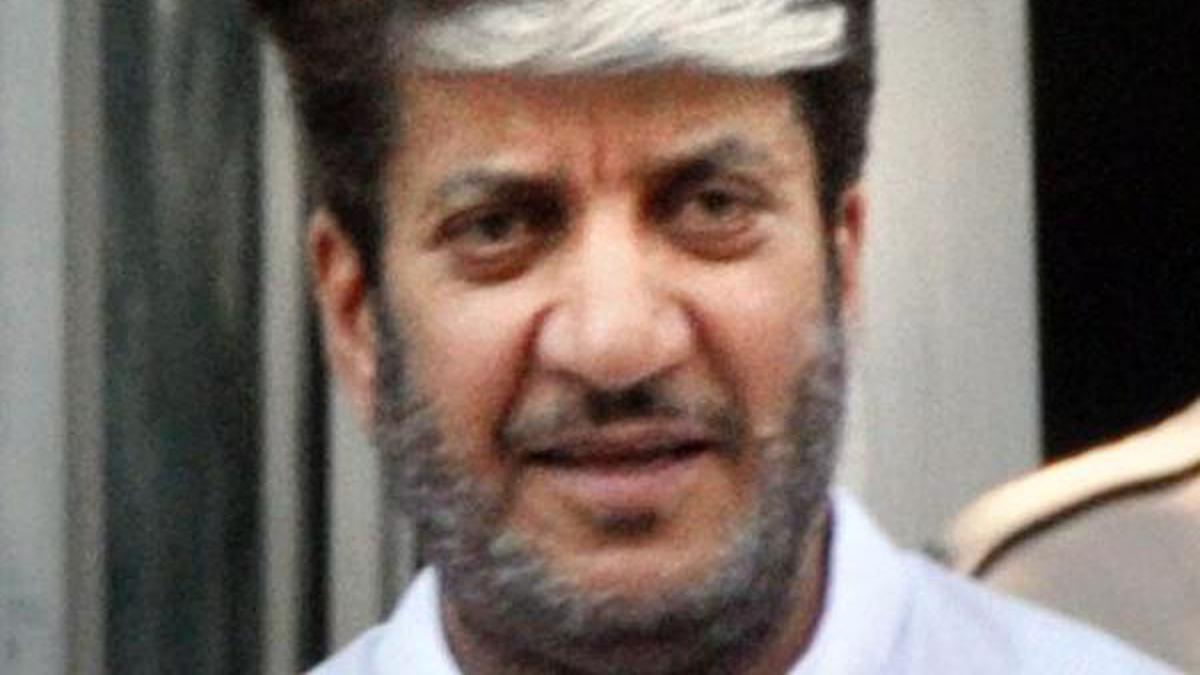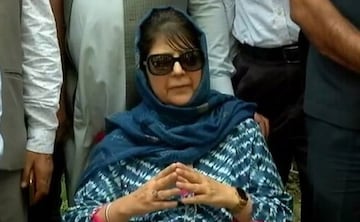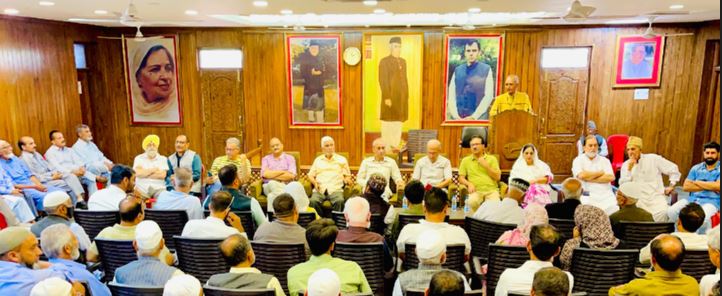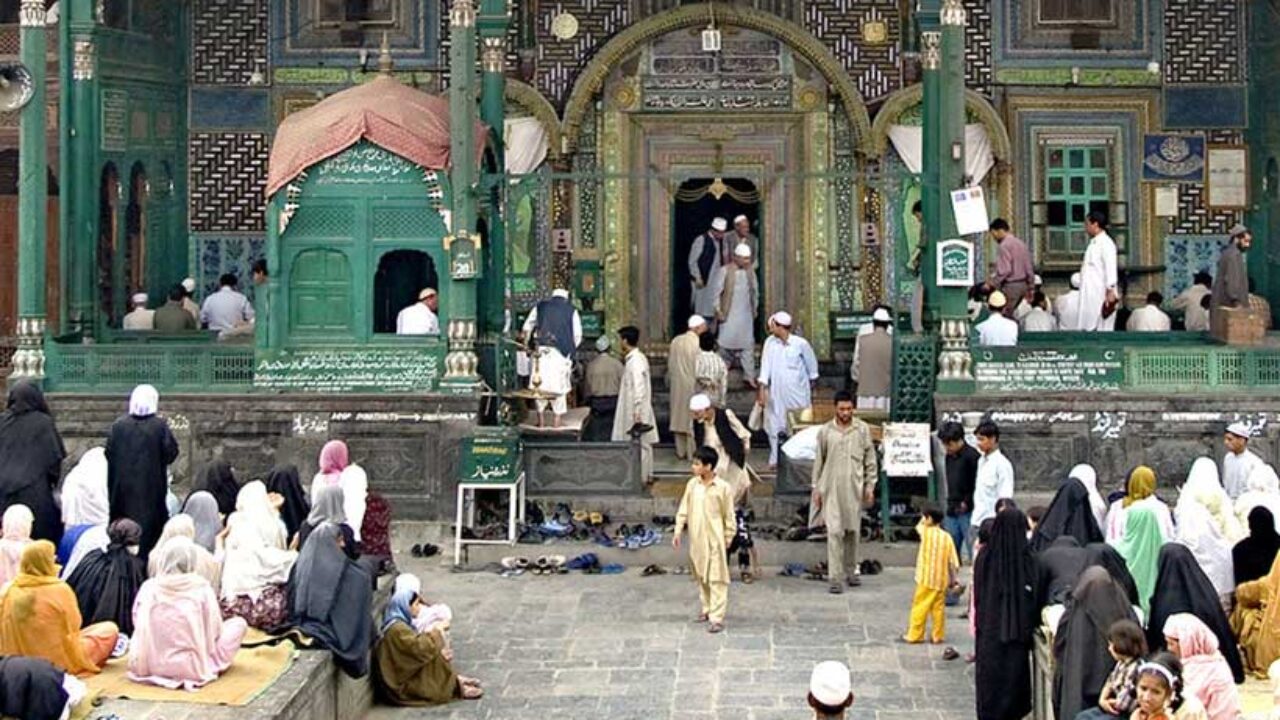SC Notice to NIA on Shabir Ahmad Shah Bail Plea in Terror Funding Case
By: Javid Amin | 04 Sep 2025
Case Background: Who is Shabir Ahmad Shah?
Shabir Ahmad Shah, often referred to as the “Nelson Mandela of Kashmir” by his supporters due to his long incarceration history, is a veteran separatist leader and Vice President of the Jammu & Kashmir Democratic Freedom Party (JKDFP).
-
Shah was first arrested in the 1980s for his political activities supporting Kashmir’s separatist movement.
-
Over the years, he has spent more than 33 years in jail on charges ranging from public order violations to alleged terror links.
-
In the current case, he was arrested by the National Investigation Agency (NIA) on June 4, 2019, in connection with a 2017 terror funding investigation.
The charges allege that Shah:
-
Played a key role in raising and distributing funds to fuel unrest in J&K.
-
Was involved in hawala transactions and LoC (Line of Control) trade-based funding networks.
-
Delivered provocative speeches, allegedly glorifying slain militants as “martyrs.”
The NIA claims that funds linked to Pakistan-based groups were funneled into Kashmir through Shah and others to finance stone-pelting, protests, and militant recruitment.
Supreme Court Proceedings: What Happened?
The case came before a Supreme Court bench of Justices Vikram Nath and Sandeep Mehta.
-
Shah’s counsel argued for interim bail, citing serious health issues. His lawyers told the Court that his deteriorating condition requires urgent medical attention outside prison.
-
The bench, however, declined interim relief, noting the gravity of charges and the precedent set by the Delhi High Court.
-
At the same time, the Court agreed to examine Shah’s main bail plea, issuing a notice to the NIA to respond.
The SC’s intervention follows the Delhi High Court’s June 12, 2025 order, which denied regular bail. The High Court had observed that:
-
Shah’s release carried a serious risk of witness tampering.
-
There was a likelihood of his involvement in continued unlawful activities.
Now, the Supreme Court has fixed the matter for a detailed hearing in two weeks.
The Legal Arguments
Shabir Shah’s Counsel’s Position
-
Claims that his continued incarceration violates his fundamental rights under Article 21 (Right to Life & Liberty).
-
Argues that evidence against him is based largely on statements and financial trails, not direct proof of violence.
-
Emphasizes humanitarian grounds—serious illness, medical complications, and prolonged detention without trial.
NIA’s Position (Expected in Response)
-
Will likely stress that Shah is a repeat offender, with multiple pending cases over decades.
-
Argues that granting bail could enable him to re-establish networks of terror funding and mobilization.
-
May highlight the sensitive security environment in J&K, especially after recent militant attacks like the Pahalgam massacre (April 2025).
Why This Case Matters
The case has wider political and security implications:
-
Separatist Politics: Shah is among the last prominent separatist leaders still facing trial. His bail—or continued detention—sends a strong signal about New Delhi’s approach to separatist politics in Kashmir.
-
Terror Funding Investigations: The NIA has pursued dozens of cases since 2017, linking separatist groups, hawala networks, and militant outfits. The Court’s stance on bail in such cases could set a precedent.
-
Humanitarian Dimension: Rights groups often argue that long detentions without speedy trial undermine democratic norms. Shah’s case highlights the tension between security concerns and civil liberties.
Reactions in Kashmir
-
National Conference (NC): Leaders have avoided direct comment but stress the need for fair trial and judicial transparency.
-
PDP (Mehbooba Mufti): Likely to frame the case as part of the “criminalization of dissent,” pointing to Shah’s long history of imprisonment.
-
Apni Party (Altaf Bukhari): May call for balance—upholding law while ensuring prisoners get fair medical treatment.
-
Civil Society: Human rights activists argue that prolonged trials erode faith in justice and worsen alienation in Kashmir.
Wider Implications
The case also carries a geopolitical edge. Pakistan frequently invokes the imprisonment of Kashmiri separatist leaders in its diplomacy, portraying them as “political prisoners.” India, on the other hand, maintains that leaders like Shah are linked to terror financing and cannot be treated as ordinary political detainees.
The Supreme Court’s handling of this case will therefore be watched not only in Kashmir but also in Islamabad, Washington, and other global capitals.
What’s Next?
-
The NIA must now file its response to the SC notice.
-
The case will come up for detailed hearing in two weeks.
-
The Supreme Court will decide whether to uphold the High Court’s denial of bail, or to release Shah under strict conditions.
Until then, Shabir Ahmad Shah remains in Delhi’s Tihar Jail, awaiting what could be a pivotal ruling in his decades-long battle with the Indian justice system.
Bottom-Line
The Supreme Court’s notice to the NIA on Shabir Ahmad Shah’s bail plea is more than a procedural step—it is a test case at the intersection of law, security, and politics in Kashmir.
If bail is denied again, it will reinforce New Delhi’s hard line on separatist leaders. If granted, it may signal a subtle shift towards a more balanced approach, factoring in humanitarian grounds.
Either way, the coming weeks will shape not just Shah’s fate, but also the legal precedent on terror funding cases in India.



